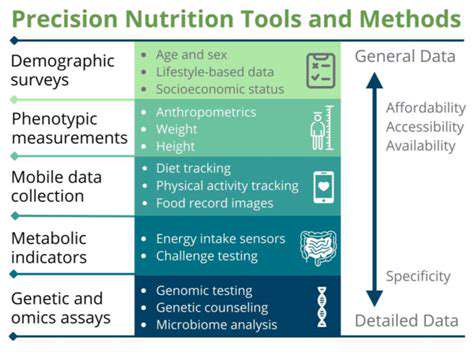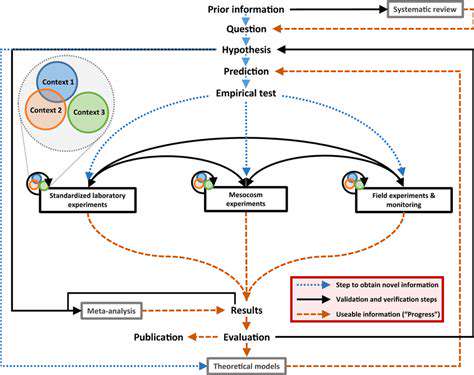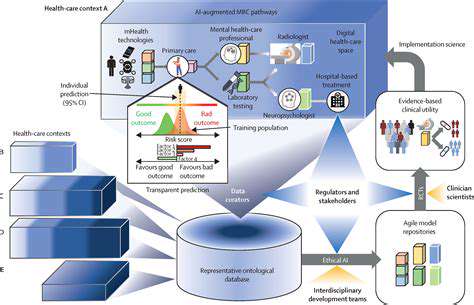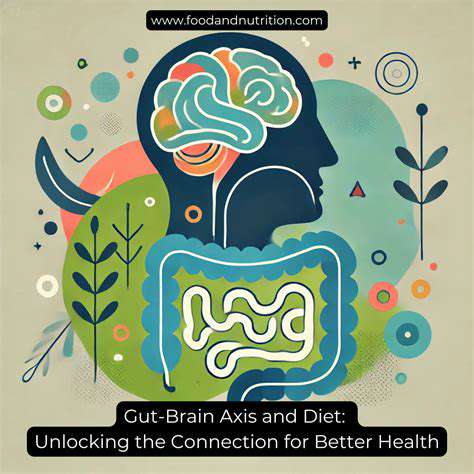Precision Nutrition for Personalized Mental Health
The Impact of Nutrient Deficiencies on Mood
Nutrient deficiencies, surprisingly common, can significantly impact mood regulation. For instance, a deficiency in vitamin D, often linked to seasonal affective disorder (SAD), can lead to feelings of sadness, fatigue, and irritability. Similarly, iron deficiency, while seemingly unrelated to mood, can manifest as fatigue, low energy, and difficulty concentrating, which in turn can negatively impact mood. Addressing these deficiencies through a balanced diet and, if necessary, supplementation, can lead to noticeable improvements in emotional well-being.
Another crucial aspect is the role of essential fatty acids, particularly omega-3s. These fats play a vital role in brain function and neurotransmitter production. A diet lacking in these healthy fats can contribute to mood instability and increased susceptibility to anxiety and depression. Incorporating foods rich in omega-3s, like fatty fish, flaxseeds, and chia seeds, into one's diet can foster better mood regulation.
The Role of Carbohydrates in Mood Swings
Carbohydrates are often demonized, but they play a crucial role in regulating blood sugar levels, which directly impacts mood. Consuming refined carbohydrates, like white bread and sugary drinks, can lead to rapid spikes and crashes in blood sugar, resulting in mood swings, irritability, and fatigue. A steadier supply of carbohydrates, provided by complex carbohydrates like whole grains and fruits, can help maintain stable blood sugar levels and promote a more consistent mood.
Furthermore, the timing and quantity of carbohydrate intake can significantly influence mood. Eating a balanced meal containing carbohydrates, protein, and healthy fats can provide sustained energy and prevent those afternoon slumps. Conversely, skipping meals or consuming excessive amounts of carbohydrates without adequate protein or healthy fats can trigger cravings and mood fluctuations.
The Influence of Protein on Emotional Stability
Protein is essential for the production of neurotransmitters, the chemical messengers in the brain that regulate mood. Adequate protein intake is crucial for maintaining optimal levels of these messengers, which in turn contributes to emotional stability and reduces the risk of mood swings. Lean meats, poultry, fish, eggs, and legumes are excellent sources of protein, and incorporating them into a balanced diet can enhance mood regulation.
The Significance of Hydration for Mental Clarity
Proper hydration is often overlooked, but it plays a vital role in maintaining mental clarity and emotional well-being. Dehydration can lead to fatigue, headaches, and difficulty concentrating, all of which can negatively impact mood. Staying well-hydrated throughout the day, by drinking sufficient water, can help maintain optimal cognitive function and contribute to a more stable mood.
The Connection Between Gut Health and Mental Well-being
Emerging research highlights the crucial link between gut health and mental well-being. The gut microbiome, the community of bacteria in the digestive system, is increasingly recognized for its impact on mood regulation. A healthy gut microbiome can support a balanced immune response, reduce inflammation, and contribute to overall emotional well-being. Consuming a diet rich in fiber, probiotics, and prebiotics can nourish the gut microbiome and promote mental health.
Addressing Specific Mood Disorders Through Diet
While diet alone cannot cure mental health conditions like depression or anxiety, it can be a powerful tool in managing symptoms and improving overall well-being. Individuals experiencing these conditions can benefit from working with a registered dietitian or nutritionist to develop a personalized dietary plan that supports their specific needs. This specialized approach can help optimize nutrient intake, manage blood sugar levels, and foster positive changes in mood.
Nutrient Powerhouses for Cognitive Function
Brain-Boosting Berries
Berries, particularly blueberries, strawberries, and raspberries, are packed with antioxidants, including anthocyanins, which have been linked to improved cognitive function. These powerful compounds fight oxidative stress, a process that can damage brain cells and contribute to age-related cognitive decline. Studies suggest that regular consumption of berries can enhance memory, attention, and overall cognitive performance, making them a crucial component of a precision nutrition plan for optimal brain health.
Beyond their antioxidant properties, berries are also rich in vitamins and minerals like vitamin C and various B vitamins, all vital for supporting healthy brain function. Incorporating a variety of berries into your diet, perhaps in smoothies, yogurt, or as a snack, can contribute significantly to a personalized nutrition plan designed to support your brain's specific needs.
Leafy Greens for Mental Clarity
Leafy green vegetables like spinach, kale, and collard greens are nutritional powerhouses, providing a wealth of vitamins, minerals, and antioxidants crucial for optimal brain function. These greens are particularly rich in vitamin K, folate, and lutein, all known to support cognitive health and protect against age-related cognitive decline. Their high water content also contributes to hydration, which is vital for brain function, ensuring your brain cells are properly nourished and functioning optimally.
The combination of nutrients in leafy greens plays a vital role in supporting various aspects of brain health, including memory, focus, and learning. Incorporating these nutrient-rich vegetables into your diet, whether in salads, soups, or as a side dish, can be a simple yet effective strategy for optimizing cognitive function as part of a personalized nutrition plan. They are a key component of a precision nutrition approach for brain health, as they support numerous aspects of brain health.
Furthermore, the high fiber content in leafy greens aids in digestion, which is linked to overall well-being, affecting both physical and mental health. Proper digestion ensures nutrients are properly absorbed, further supporting brain health and cognitive function. This is a crucial consideration in a personalized nutrition plan to optimize cognitive performance.
The presence of various vitamins and minerals in leafy greens, along with their impact on digestion, makes them an indispensable part of a well-rounded and personalized nutrition plan for cognitive enhancement.
Including leafy greens in your diet can contribute to a more focused mind and improved cognitive function, a key aspect of a precision nutrition approach.
By incorporating these nutrient-rich foods into a personalized nutrition plan, you can provide your brain with the essential building blocks it needs to function optimally, and maintain mental acuity.


Read more about Precision Nutrition for Personalized Mental Health
Hot Recommendations
- AI Driven Personalized Sleep Training for Chronic Insomnia
- AI Driven Personalization for Sustainable Stress Management
- Your Personalized Guide to Overcoming Limiting Beliefs
- Understanding Gender Dysphoria and Mental Health Support
- The Power of Advocacy: Mental Health Initiatives Reshaping Society
- Building a Personalized Self Compassion Practice for Self Worth
- The Ethics of AI in Mental Wellness: What You Need to Know
- AI Driven Insights into Your Unique Stress Triggers for Personalized Management
- Beyond Awareness: Actionable Mental Health Initiatives for Lasting Impact
- Creating a Personalized Sleep Hygiene Plan for Shift Workers











